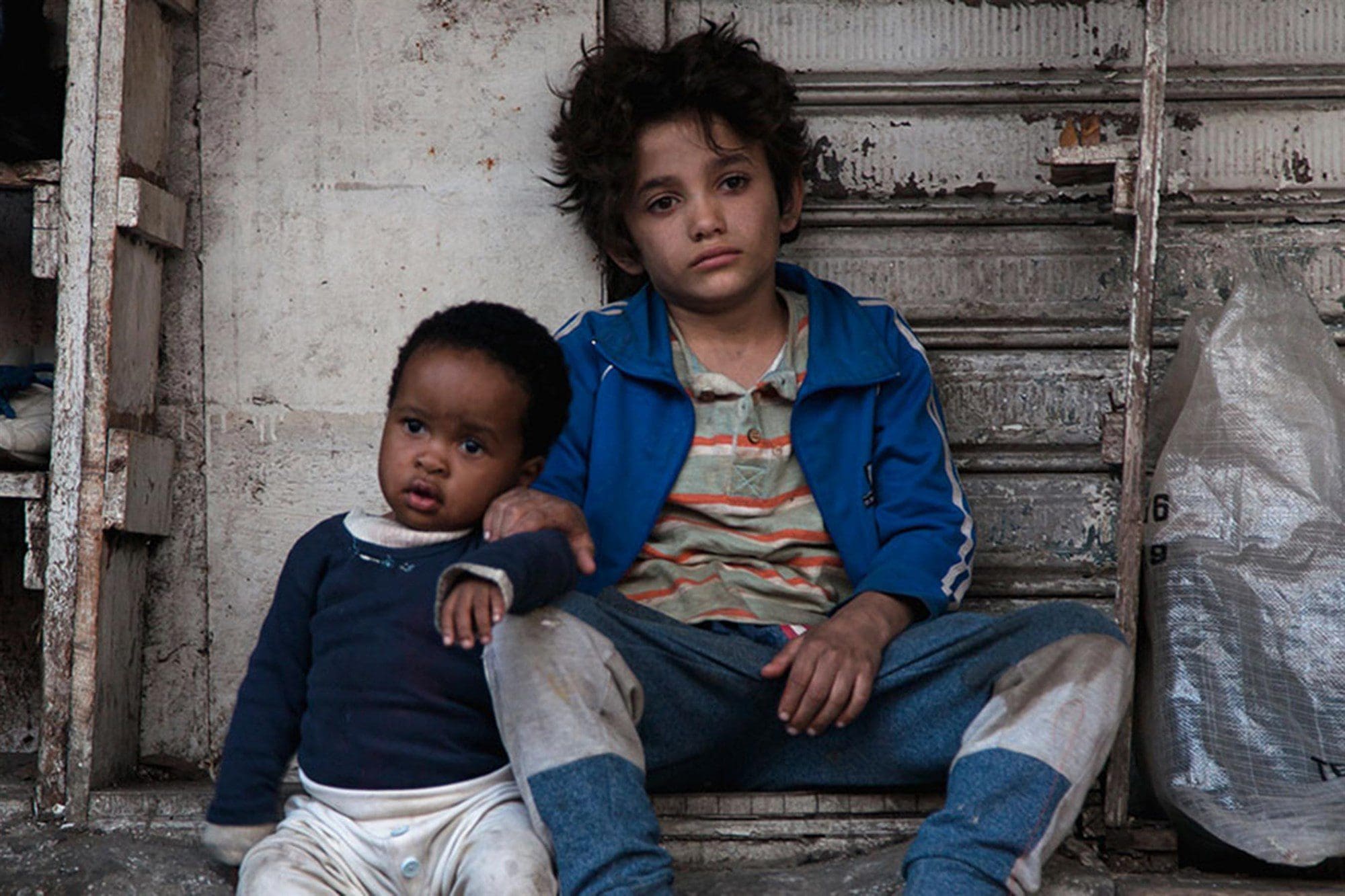
I have no doubt that director Nadine Labaki had the best intentions while filming Capernaum, her latest film and one of the major players in the race for Best Foreign Language Film at the Academy Awards. But at a punishing two-hours long, this quickly becomes an exhausting experience. In trying to highlight issues of class, sexual abuse, and institutionalized misogyny, Capernaum constantly shifts its focus to highlight different social horrors, but never does anything new with its thesis.
Labaki’s narrative centers on 12-year-old Zain, a young boy from a poor, crowded family in Lebanon. His parents can barely afford to take care of their own children, and are expecting another — their conditions are absolute hell, with even the youngest of kids left to fend for themselves. But Zain finally has enough when his parents announce their intention to marry off their oldest daughter (who is barely a teenager) to an adult man in the town. So, he runs off to take care of himself — running into a human manifestation of just about every social problem that plagues his country in the process.
It’s not that Capernaum is a poorly directed film. Labaki is a talented filmmaker, and creates a compelling narrative out of this disorganized screenplay. As the film goes along, it remains, at the very least, captivating. Labaki also touches on some truly horrific content with relative sensitivity — so, while this may be misery porn, it rarely ever feels exploitative.
But, eventually, you’re left asking: why? Why does this film insist on showcasing every single social issue, regardless of how organic it feels to the main narrative? Why does every single storyline end in the most traumatic way possible for our lead character? Why are we here? This film doesn’t really have an interest in solving any of these problems. It just wants to mention them, in an attempt to shock viewers and elicit an emotional response. It’s manipulative and, ultimately, exhausting.
The best thing about the film is its young child star: young Zain Al Rafeea delivers a performance not unlike Brooklynn Prince’s stunning work from The Florida Project last year. This isn’t just a cute kid placed in front of the camera; he gives a genuinely well-acted performance, bringing nuance to his character and creating a person that feels more realistic than anything else in the movie. In fact, all of the child performances feel genuine and better than their adult counterparts. Labaki has a real knack for directing child performers, which makes one wonder what a film like this would look like with a better script and more complex thesis statement.
It’s hard to pan a film like Capernaum. Obviously, all involved are trying to raise awareness to major problems that audiences could, realistically, help alleviate via donations. But there is a difference between a PSA and a theatrical film, and Capernaum doesn’t seem to know it. This film doesn’t earn its hard-to-watch moments, and is simply content with letting audiences know about major social issues — not actually exploring them.
Rating: 4/10


Agree. This is manipulative poverty porn. What’s sad is that she and her producer are threatening people in Lebanon for daring to speak out against this film. They’re high-class bullies trying to repress the voices of the lower-income classes unless it helps them get awards…